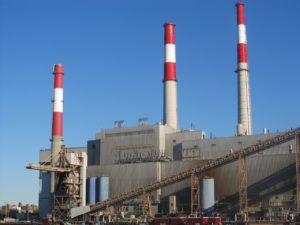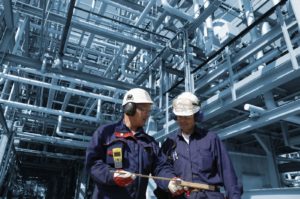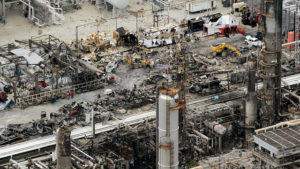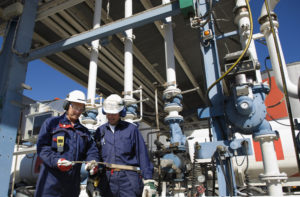5 Best Practices for Negotiating EPC Contracts
Estimated reading time: 5 minutes When managing Engineering, Procurement and Construction (EPC) contracts, it is important to be able to negotiate effectively through taking measurable steps to improve your negotiating position to have the upper hand. Especially for EPC contracts, where projects are complex and huge in scale, achieving optimal results requires a well-prepared comprehensive negotiating strategy. In every project, it is necessary to have good contract management in place; otherwise it can have negative consequences for all stakeholders involved. It will also affect the success of the project in terms of project timeline, project costs, project quality, safety aspects…
Read MoreHow to Choose the Right Tender Evaluation Model
Estimated reading time: 5 minutes A tender is a submission made by a prospective supplier in response to an invitation to tender. There are 4 types of tenders, mainly open tender, selective tender, negotiated tender and single-stage and two-stage tender. With proper preparation and understanding, any business can master its bid management and tender evaluation approach. Once the project has been evaluated to be a good opportunity for the business, there are various factors one should consider before entering the tender process. These factors mainly are project requirements, project costings, manpower capabilities, fit of business capabilities and bid management team. After receiving…
Read MoreBiomarkers Use in Petroleum Geochemistry
Estimated reading time: 5 minutes Petroleum geochemistry improves the efficiency of petroleum exploration as it provides an understanding on the factors that affect the volume of crude oil and natural gas available. Petroleum geochemistry offers rapid, low-cost evaluation tools to aid in understanding development and production problems. It is best used with other disciplines, such as seismic sequence stratigraphy and reservoir characterization. What is petroleum geochemistry? Petroleum geochemistry is the branch of geochemistry which deals with the application of chemical principles in the study of the origin, generation, migration, accumulation, and alteration of petroleum. Petroleum is defined as the thick, flammable…
Read MoreWhat Makes A Successful Plant Shutdown?
Estimated reading time: 6 minutes Effective planning and execution of shutdowns and turnarounds are major tasks during a plant’s life cycle. It is an important aspect of plant maintenance that helps improve the life expectancy of assets, to maintain inventory levels and reduce loss of revenue. Shutdowns are costly because they are labour and material-intensive. Hence, it is key that shutdowns are carried out quickly and effectively to minimize downtime and any negative business impacts. Successful organisations have a comprehensive model that outlines all the key phases of a shutdown management plan. This provides a step-by-step guide for…
Read More3 Tips to Promote Safety in the Workplace
Estimated reading time: 6 minutes Human factors play a significant role in major accident causation, with several major oil and gas accidents being attributed to human causes. The US Chemical Safety Board (CSB) has identified human factors as one of the major factors that has led to disastrous accidents in the oil and gas industry. Human factors is defined as, “environmental, organisational and job factors, and human and individual characteristics, which influence behaviour at work in a way which can affect health and safety.” Several notable accidents in the industry have all been caused by lapses in safety procedures…
Read MoreWhat is Health, Safety and Environment (HSE) Management System?
Estimated reading time: 6 minutes In today’s environment, organisations are under growing pressure to comply with Health, Safety and Environment (HSE) regulations and standards. While there are various aspects to creating and maintaining a safe working environment, the key is to develop and implement an effective safety management system. A HSE Management System is an integrated approach where all the 3 HSE factors are effectively managed to reduce risks in the workplace. The objective of a Safety Management System is to provide a structured management approach to control safety risks. The 3 main components to reduce HSE risks are commitment and leadership, implementation of new policy…
Read More4 Tips to Managing Successful Joint Ventures
Estimated reading time: 6 minutes Due to increasing project complexity and customer demands, it is now commonplace for organisations to form alliances across industries. Organisations are moving towards joint ventures to tap on the partner’s strengths and diversify at a much lower risk. Joint ventures provide an entry point into strategic markets, making JVs an attractive option to get around regulatory issues. Joint ventures in US yield a 17% return on investment, compared with an industry average of 11%. Meanwhile, in a global survey of 253 companies that used joint ventures to spur growth or optimize their product…
Read MoreRole of Human Factors in the BP Texas City Explosion
Estimated reading time: 5 minutes On March 23, 2005, one of the worst industrial disasters in recent U.S. history occurred at the BP Texas City Refinery. The disaster that took 15 workers lives and injured 180 others, occurred as a result of an explosion and fire during the startup of a process unit. A distillation tower was overfilled and liquid and vapor hydrocarbons were released into the atmosphere. A vapor cloud formed, found an ignition source, and exploded. An investigation done by the U.S. Chemical Safety and Hazard Investigation Board (CSB) who summarized that the accident was caused by…
Read More4 Steps To Start A Strategic Communication Strategy
Estimated reading time: 4 minutes What is a strategic communication strategy? A strategic communication strategy involves creation of plans to convey information to target audience through dedicated telecommunications that satisfies a long term strategic goal of an organization. The difference between a simple communications plan and a strategic communication strategy is the addition of advanced strategic planning for the latter. Developing a strategic yet integrated communications plan in your organisation will be able to create value and enhance the work productivity of your employees. It is integral in its prevalence, given that all organizations have certain strategies to…
Read More4 Common Mistakes of Maintenance Planning and Scheduling
Estimated reading time: 5 minutes One of the critical features of a plant operation, is its effective maintenance management in establishing conditions for safe operations, and in supporting the commercial success of the business. Effective maintenance reduces overall company cost because production capacity is available when needed. The company makes a product with this capacity to sell at a profit. This explains the reliability-cost relationship: focus on overall cost reduction and reliability gets worse but focus on reliability improvement and overall cost goes down. Nevertheless, examining the cost of the maintenance operation cannot be dismissed as unimportant. After…
Read More









